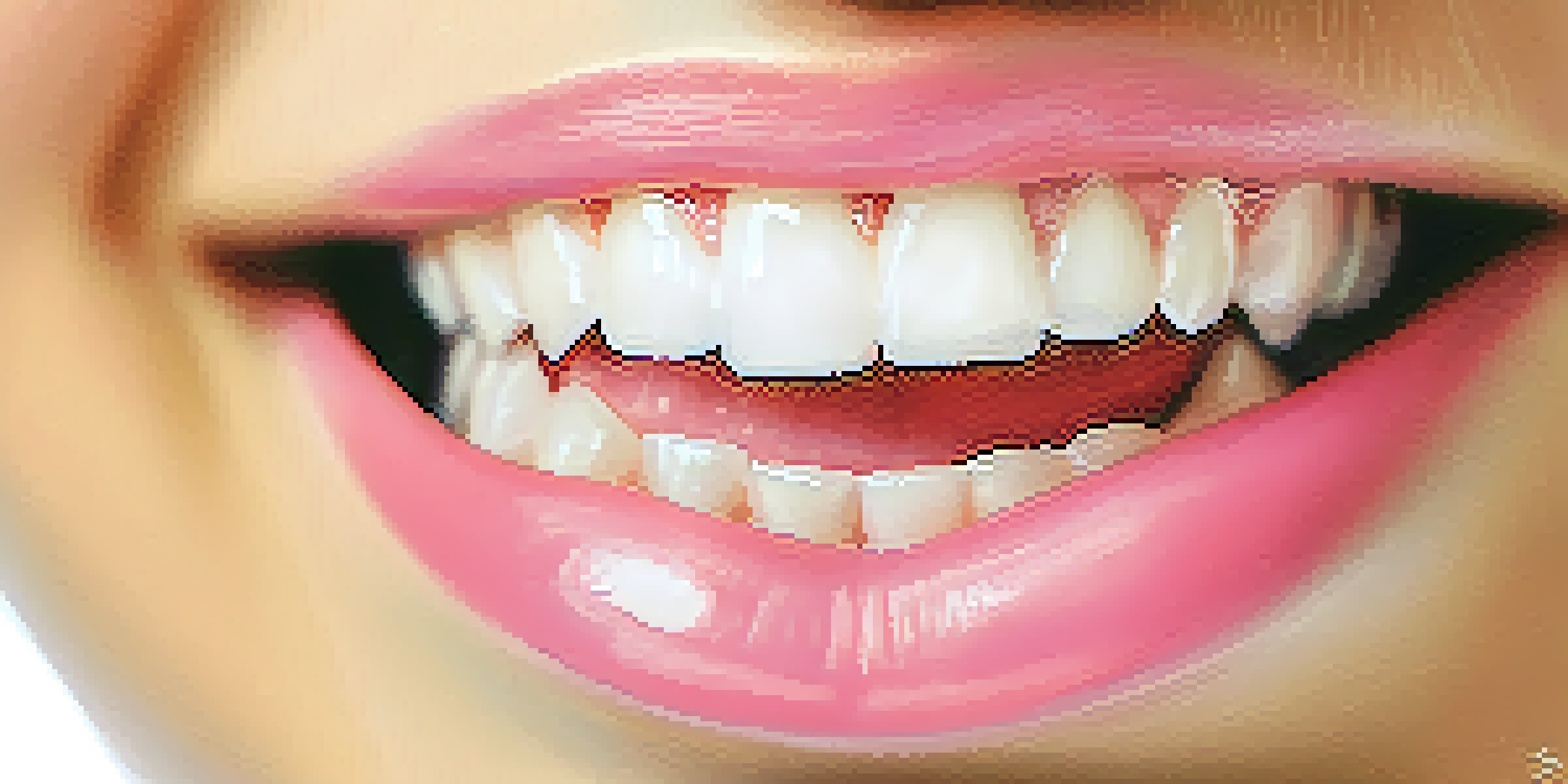The Link Between Oral Health and Hormonal Changes

Hormonal Changes: An Overview and Their Impact
Hormonal changes occur throughout various life stages, including puberty, menstruation, pregnancy, and menopause. These fluctuations can lead to various physical and emotional shifts, impacting overall health. One area often overlooked is oral health, which can significantly be affected by these hormonal changes.
The mouth is the gateway to the body, and oral health is a reflection of overall health.
For instance, during puberty, increased hormone levels can lead to heightened gum sensitivity and inflammation. Similarly, menstruation can also cause temporary oral issues, such as gum swelling or discomfort. Recognizing these patterns helps individuals understand how their bodies respond to hormonal changes and address any oral health concerns proactively.
Being aware of these changes empowers individuals to maintain better oral hygiene practices during these times. Regular dental check-ups and open communication with healthcare providers can ensure that both hormonal health and oral health are managed effectively.
The Influence of Hormones on Gum Health
Hormones like estrogen and progesterone play vital roles in regulating gum health. During periods of hormonal fluctuations, such as during menstruation or pregnancy, these hormones can cause blood flow to the gums to increase, leading to tenderness and inflammation. This heightened sensitivity may make it easier for plaque to build up, increasing the risk of gingivitis.

Pregnant individuals are particularly susceptible, as the surge in hormones can lead to pregnancy gingivitis, characterized by swollen, red gums that bleed easily. If left untreated, this condition can progress, potentially affecting both oral and overall health. Hence, it's crucial to pay special attention to oral hygiene during pregnancy.
Hormones Impact Oral Health
Hormonal fluctuations during puberty, menstruation, pregnancy, and menopause can lead to significant changes in oral health, including gum sensitivity and increased risk of gum disease.
Understanding how hormones affect gum health can encourage proactive measures, like adjusting brushing techniques or increasing dental visits. By taking these steps, individuals can mitigate the negative effects of hormonal changes on their oral health.
Menopause and Its Effects on Oral Health
Menopause marks a significant hormonal shift, often accompanied by a decrease in estrogen levels. This change can lead to various oral health issues, including dry mouth, altered taste, and increased risk of periodontal disease. Dry mouth, or xerostomia, can be particularly uncomfortable and may lead to difficulties in speaking, swallowing, and even eating.
Oral health is critical to overall health and wellness, especially during times of significant hormonal changes.
Additionally, the reduction in estrogen can negatively affect the tissues in the mouth, causing them to become thinner and more susceptible to irritation. This can make maintaining oral hygiene more challenging, leading to a cycle of worsening oral health. Understanding these changes can help individuals seek appropriate solutions, such as saliva substitutes or increased hydration.
Open discussions about these changes with dental professionals can help tailor care strategies. By addressing these menopausal effects proactively, individuals can better manage their oral health and improve their quality of life.
The Connection Between Diabetes and Oral Health
Diabetes is a chronic condition that significantly influences hormonal balance and, in turn, oral health. Individuals with diabetes may experience higher blood sugar levels, which can lead to an increased risk of gum disease and infections. The relationship between diabetes and oral health is bidirectional; poor oral health can also affect blood sugar control.
For instance, gum disease can cause inflammation, leading to higher insulin resistance. This vicious cycle can make it challenging for individuals with diabetes to manage their overall health. Hence, maintaining good oral hygiene is crucial for those living with diabetes to prevent complications.
Diabetes Affects Oral Hygiene
Individuals with diabetes face a bidirectional relationship with oral health, where poor oral hygiene can worsen blood sugar control and increase the risk of gum disease.
Regular dental visits and proper oral care can play a pivotal role in managing both diabetes and oral health. By understanding this connection, individuals can take proactive steps to protect themselves from potential health issues.
Oral Health During Puberty: What to Expect
Puberty is a time of significant hormonal changes that can greatly impact oral health. As hormones surge, individuals may notice increased gum sensitivity and heightened risk of cavities. These changes can be attributed to hormonal fluctuations that affect the body’s response to bacteria in the mouth.
For example, the increase in androgens during puberty can lead to an increase in oil production, which may create a favorable environment for bacteria to thrive. Consequently, this can sometimes result in gingivitis, characterized by swollen and bleeding gums. It's essential for adolescents to be vigilant in their oral hygiene practices during this time.
Encouraging regular brushing, flossing, and routine dental check-ups can help manage these oral health challenges. By fostering good habits early on, individuals can set the stage for a lifetime of healthy teeth and gums.
The Role of Hormonal Contraceptives on Oral Health
Hormonal contraceptives, such as birth control pills, can significantly impact oral health. These medications often contain estrogen and progesterone, which can lead to changes in gum health similar to those experienced during pregnancy. Some individuals may notice increased gum sensitivity or a heightened risk of gingivitis while using these contraceptives.
It's important to note that not everyone will experience these changes, but being aware of the possibility can help individuals monitor their oral health more closely. Regular dental visits can provide an opportunity to discuss any concerns and adjust oral care routines as needed.
Proactive Care is Essential
Maintaining a robust oral hygiene routine and regular dental visits can help manage the oral health challenges associated with hormonal changes.
By understanding the potential effects of hormonal contraceptives on oral health, individuals can take proactive steps to mitigate any negative impacts. This might include more frequent dental check-ups or adjusting their oral hygiene practices.
Maintaining Oral Health Through Hormonal Changes
Navigating hormonal changes can be challenging, but maintaining oral health doesn’t have to be. Establishing a robust oral hygiene routine is key to preventing dental issues associated with hormonal fluctuations. This includes brushing twice daily, flossing regularly, and using mouthwash to reduce bacteria.
Additionally, staying hydrated and consuming a balanced diet can help support overall health and reduce the risk of oral problems. Regular dental visits are crucial during times of hormonal change, as dental professionals can provide personalized care and recommendations.

By prioritizing oral health during these changes, individuals can ensure their teeth and gums remain healthy. This proactive approach can lead to better overall well-being, contributing to a more comfortable and confident life.